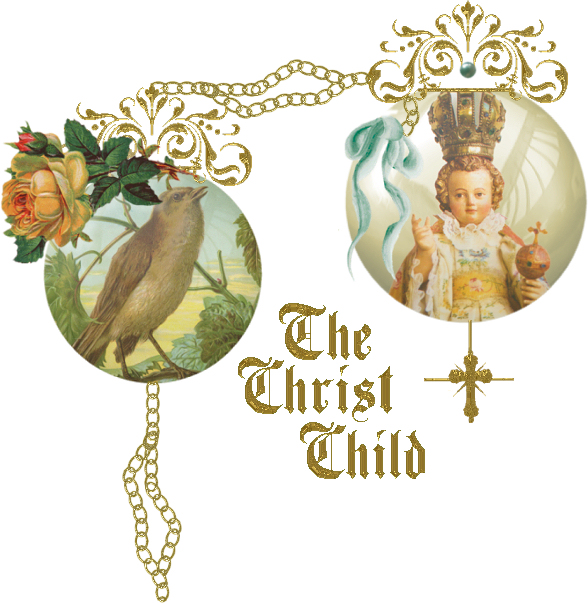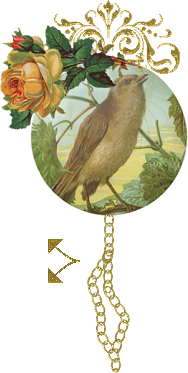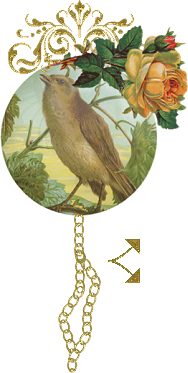|
About Devotion to the Christ Child Devotion to the Infant King became particularly popular in the Middle Ages with great Saints like St. Bernard of Citeaux and St. Francis of Assisi. Their tender love for the Sacred Humanity of our Lord found expression in hymns, poems, songs, and sermons that attracted others to this devotion. Closer to our own day, St. Therese of Lisieux had a great love for the Infant Savior. She is known as Saint Therese of the Child Jesus, the name she took at her religious profession. A statue of the Infant was her special charge in the Carmel. Her "little way" is based on the simplicity and trust of a child in our relationship with God. Among the prayers she composed is this one: "O Eternal Father, Thy only Son, the dear Child Jesus, is mine, since Thou hast given Him to me. I offer Thee the infinite merits of His Divine childhood, and I beg Thee in His Name to open the gates of Heaven to a countless host of little ones who will follow this Divine Lamb." That canonized Saints and so many others have recognized the need of devotion to the Infant King is not hard to understand. Far back in the Old Testament times the prophet Isaiah spoke of a little "shoot" that was to bud from the stock of Jesse [Is. 11]. The spirit of the Lord would rest on this One of David's line and at His coming there would be messianic peace throughout the land, for a little child shall lead them." The Evangelists of the New Testament see this prophecy fulfilled in Jesus Christ, the True Prince of Peace so long awaited. Son of Mary, Who is of David's line, He is at the same time the Eternal Son of God. God has placed in men's hearts an instinctive response to the helplessness of childhood. It is His will that this response, as all others, be made to His Son, Who, "being rich, became poor for your sake, in order that by His poverty you might become rich" [2 Cor. 8, 9]. God ordained that jesus should know all life's stages: infancy, childhood, youth, that He should be like us in everything, except sin. Our Lord knew the frailty of babyhood. He was nursed and carried about in mary's arms, to watch with wondering eyes the world unfolding to His growing human intelligence. There is no stage of growth that Jesus has not sanctified for us by living it Himself. And childhood seems to hold a special place in His heart. For as a grown man, it was a child whom He took in His arms to hold up as a model for His disciples. "Who is the greatest in the Kingdom of Heaven?" they had asked Him. Christ answered: "Amen I say to you unless you be converted, and become as little children, you shall not enter into the Kingdom of Heaven. Whosoever who shall humble himself as this little child, he is the greater in the Kingdom of Heaven. And he that shall receive one such little child in My name, receiveth Me. But he that shall scandalize one of these little ones that believe in Me, it were better for him that that a millstone should should be hanged about his neck, and that he should be drowned in the depth of the sea" [Matt. 1, 3-6]. This teaching should not be misunderstood. Jesus is not commending childishness, timidity, lack of spiritual maturity. The Infant of Prague is pictured wearing a crown, with a globe in one small hand, and this is not without meaning. "The government is on His shoulder," we sing in the Introit of the third Mass for Christmas Day. The Child of Bethlehem was born with a mission of salvation. Being a follower of Christ demands courage, decisive action, maturity. But coupled with these must always be humility, candor, confidence ---- those virtues of childhood. It is these virtues that Jesus is recommending. A child accepts himself for what he is. Undismayed by falls and setbacks, he gets up again and begins over. A child is confident: he trusts his parents, believes what they tell him and asks simply for what he needs. And a child is honest; his forthright candor and simplicity in dealing with others can help us to see what our relationship with God and our neighbor should be. Our Lord often called His followers "little ones." They were His "little flock" to whom the Father gave the Kingdom of Heaven [Lk. 12, 32]. This is a title of humility and love, a title suited to the Master Who used it, for He is "meek and humble of heart." Devotion to the Christ Child is a means of appreciating this humility and love, a means of having in us the mind of Christ Jesus as St. Paul urges [Phil. 2, 5]. The Child of Bethlehem was born to die for us, to make us children of God; "to as many as received Him He gave the power of becoming sons of God" [John 1, 12]. Devotion to Him impresses its own special character on our piety, blending the joy of adoration with a sense of intimacy. This Child is in the omnipotent God, yet He is also man in all the frailness of flesh. He is the immortal God, yet He will die for us. The whole of creation is modeled on Him Who is the image of the Father, yet He is born on earth and grows up in a little town of no fame. His Father in Heaven is the eternal God, yet His father on earth was a carpenter. These contrasts of majesty and humility, of power and weakness, give harmony and depth to the tenderness of our devotion to Christ in His Childhood, mingling in our hearts a trusting and affectionate love with total adoration. Devotion such as this to our Lord's Infancy leads us to His Father. There was always the loving reverence of a child for his father in our Lord. He spoke of Him with filial pride and gravitated toward Him throughout His Life. When Mary and Joseph found Him in the temple after their anxious search, the boy Christ answered their worried question with the simple: "Did you not realize that I must be about My Father's business?" His last words on the Cross were those of surrender to Him: "Father, into Thy hands I commend My spirit." Always He showed utter confidence in His Father: Father, I know that You always hear Me" [John 11, 42]. It was His mission to reveal God the Father's merciful, steadfast love for us, His estranged children, to reclaim us for Him. Hand-in-hand with Christ we, too, go to the Father. Love for our Infant Savior teaches us to accept ---- as He did ---- our littleness, our poverty as creatures. It teaches us, as St. Paul has taught, that "My grace is sufficient for you, for power is made perfect in infirmity" [2 Cor. 12, 9]. This devotion shows us that God's power is attracted by by our very weakness, for God's power is mercy. The proud and arrogant, God scatters, "he has put down the mighty from their thrones," as our Lady sang in her Magnificat. But the little and humble He loves. "he has exalted the lowly" [Luke 1, 52]. This devotion to the Christ Child also teaches us a daring confidence in our Heavenly Father. He shows His power most of all as the Collect prayer for the 10th Sunday after Pentecost reminds us, by pardoning and granting mercy. It is from His Son that we learn how much our Father yearns to show us His love and hear our prayers. "If one of you asks his father for a loaf, will he hand him a stone, or for a fish, will he hand him a serpent ... ? Therefore, if you, evil as you are, know how to give good gifts to your children, how much more will your Heavenly Father give . . . " [Luke 11, 11-13]. God
created us in order to have those to whom He could
give. We praise our Father by receiving His gifts. Our Lord told us of
the great joy of finding a lost sheep. God's joy in us is the joy of a
Savior. We cannot give Him anything He does not already have. He
receives
something only when we accept His gifts. The joy of our Father in
Heaven,
then, is the joy of the Father when His child asks His aid lovingly and
confidently. When our prayer comes to Him through Christ, His beloved
Son,
He will not fail to hear it, for "in this is the love, not that we
loved
God, but that He has first loved us and sent His Son a propitiation for
our sins" [1 John 4, 10]. Source: SEE ALSO
THE CHILDREN'S
PAGE, INFANT
OF PRAGUE. DOWNLOAD
AN IMAGE OF THE INFANT OF PRAGUE |


